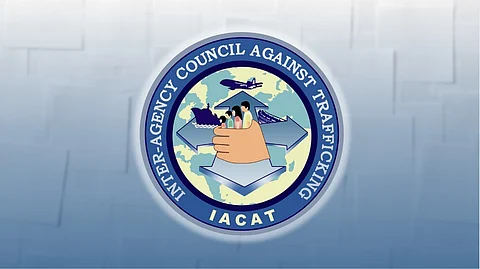
- NEWS
- the EDIT
- COMMENTARY
- BUSINESS
- LIFE
- SHOW
- ACTION
- GLOBAL GOALS
- SNAPS
- DYARYO TIRADA
- MORE

The Inter-Agency Council Against Trafficking (IACAT) announced Wednesday a significant shift in the demographics of human trafficking victims, with more educated individuals now being targeted.
“There has been a shift actually in vulnerability,” said Hannah Lizette Manalili, IACAT executive director of the Department of Justice (DoJ). “Traditionally, those who are vulnerable are those who are in the lower economic income bracket.”
“Now we have seen a shift, especially in terms of forced labor being the highest number of trafficking cases. There is a shift for human trafficking among our educated countrymen who are being offered opportunities outside the Philippines,” she added.
Manalili explained that victims are often recruited with promises of high salaries for IT or computer expert roles, only to find themselves forced into scamming operations upon arrival in foreign countries.
IACAT reported that 50 individuals were convicted of various human trafficking offenses during the first half of 2025.
“This is our strong commitment not only to rescue victims but to file cases against their perpetrators,” Manalili stated. Of those convicted, 14 were found guilty of sex trafficking and one for illegal child adoption. These convictions stemmed from cases against 111 persons charged by IACAT and other member agencies.
Beyond prosecuting offenders, Manalili noted that “we have provided support to a total of 900 victims of various forms of trafficking for the first half of 2025 through the IACAT operations center.”
Separately, the Department of Social Welfare and Development (DSWD) in Baguio reported that it served 1,371 survivors of human trafficking through its Comprehensive Rehabilitation and Recovery Program for Trafficked Persons (RRPEP) from January to June 2025.
A staff representative, speaking on behalf of DSWD-Baguio director Rachel Jean, emphasized that RRPEP plays a vital role in assisting trafficking survivors in their recovery and reintegration into society. The program is anchored in Republic Act 10364, or the Expanded Anti-Trafficking in Persons Act of 2012.
“This is a comprehensive rehabilitation and education program for trafficked persons. We advocate strongly for RRPEP because it treats victim-survivors not as mere cases, but as individuals who need holistic care,” the representative said during a briefing.
Funded under the national government’s General Appropriations Act, RRPEP offers both cash and non-cash assistance. Cash support covers aid for employment, housing, transportation — especially for court appearances — medical needs, and education.
Non-cash services primarily involve psychosocial counseling and coordination with partner agencies to ensure long-term recovery and reintegration.
“All trafficking victims receive the help of a licensed social worker. These are professionals who assess the survivors’ needs, draw up intervention plans, and monitor their progress, much like doctors or lawyers,” the staff member added.
Of the 1,371 survivors served in the first half of the year, 75 percent were women and 25 percent were men, with the majority falling into the 18 to 30 age group. The top causes of trafficking identified were forced labor, forced prostitution, and illegal recruitment.
The agency reported spending P3.33 million in total cash assistance during the six-month period. Non-cash services, including rehabilitation and psychosocial support, were extended to all 1,371 clients.
